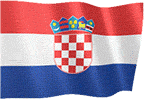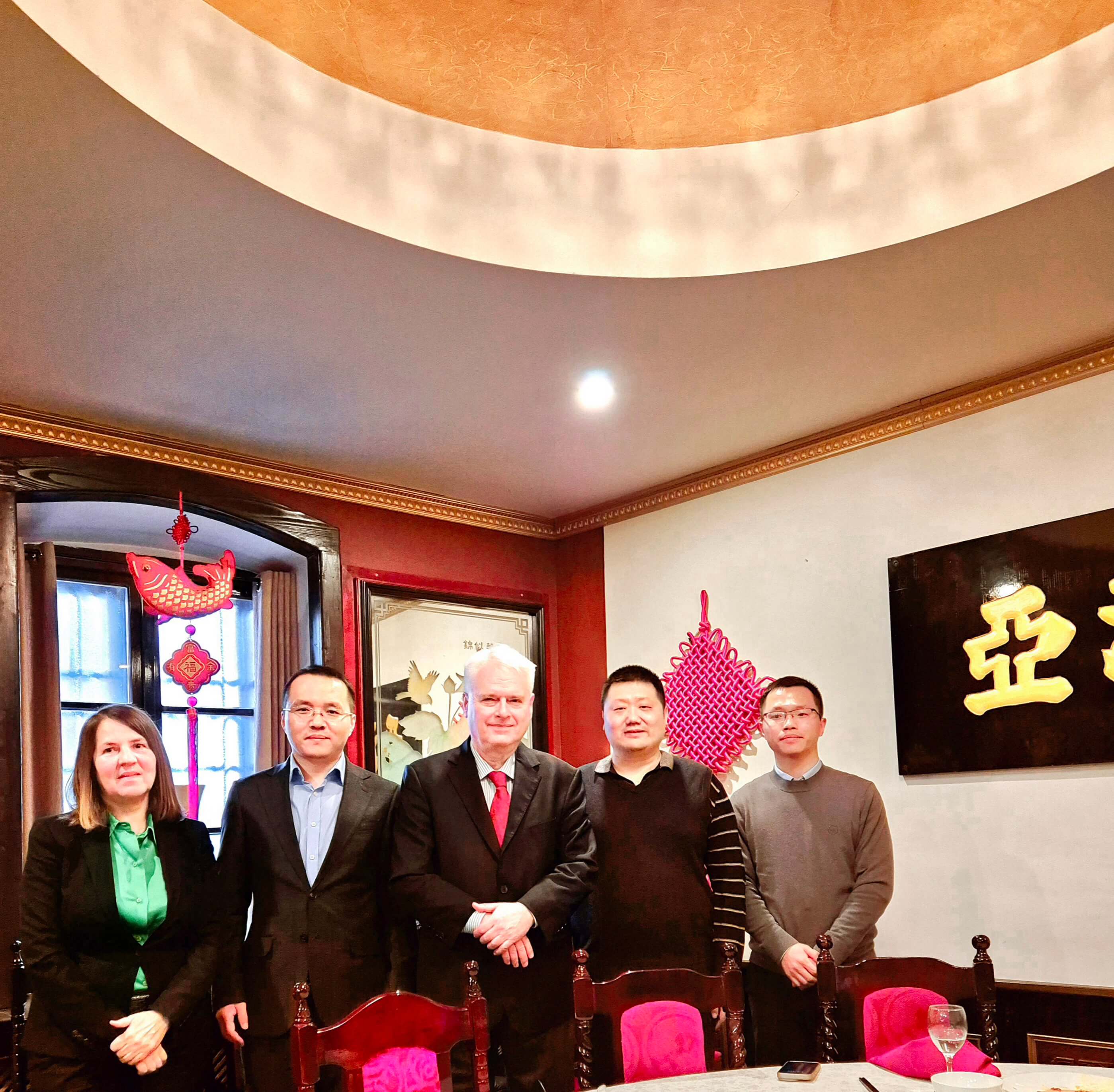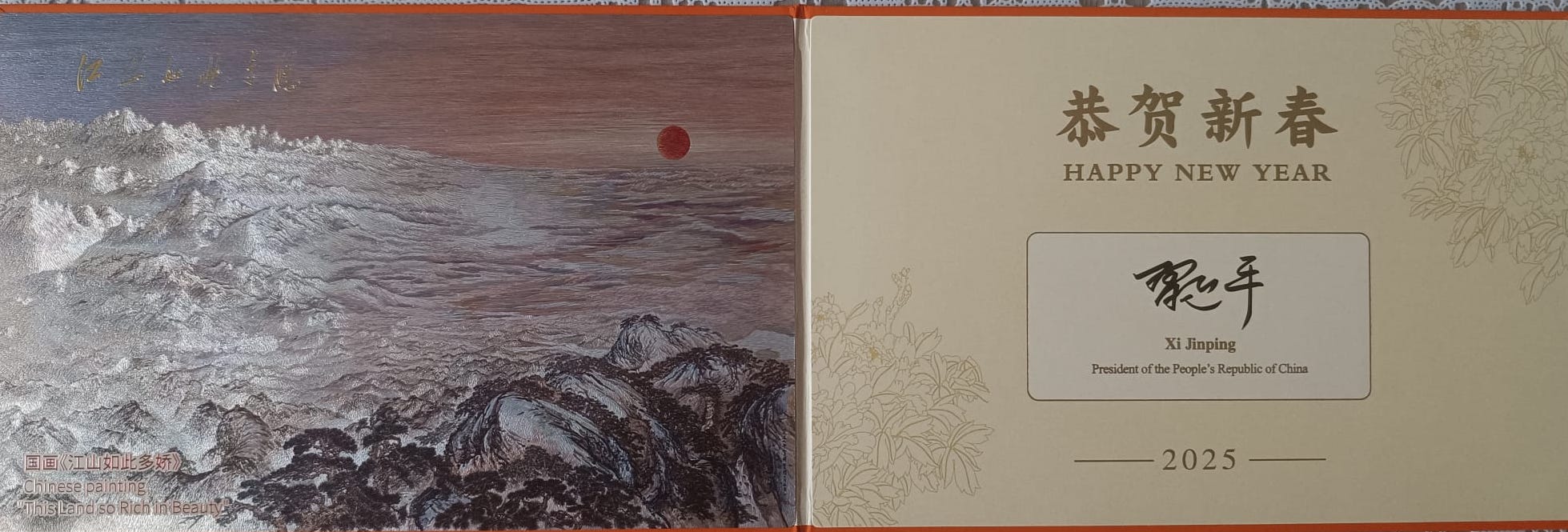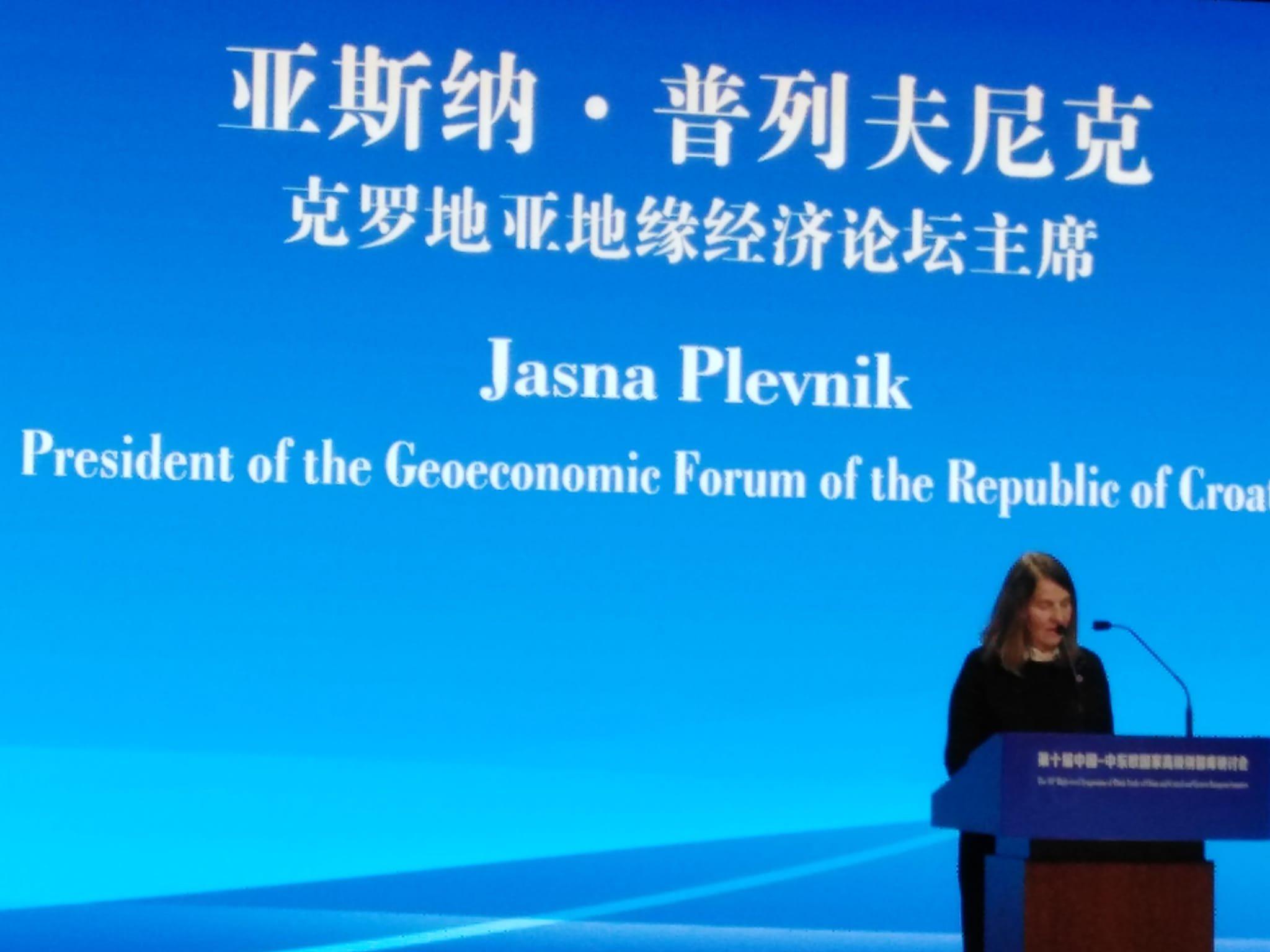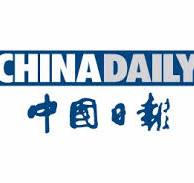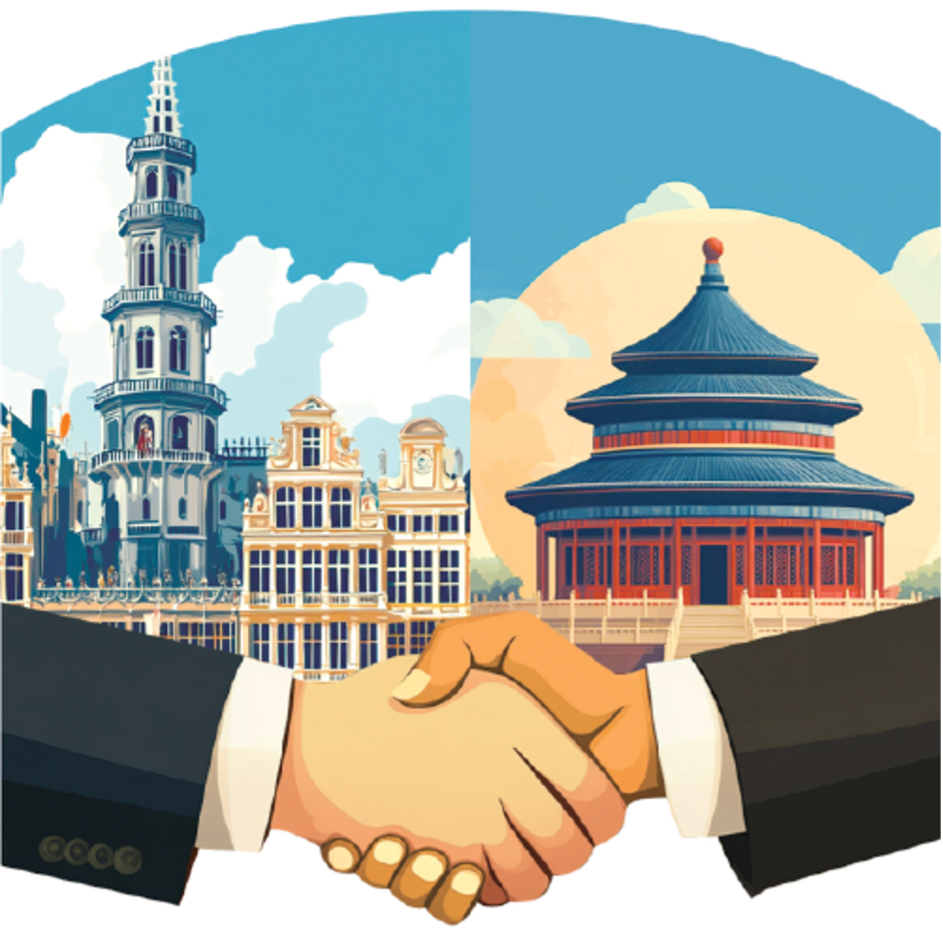Fang Hongbo: "I am just a passer-by; I don't need to be remembered by anyone"
Original LatePost -Team LatePost
May 19, 2025, 05:53
Excerpts from exclusive interview with Midea's Fang Hongbo:
China’s sixth richest man He Xiangjian, the founder of world’s biggest home appliances maker Midea group. Photo: Weibo
Fang Hongbo rarely accepts interviews, and this is one of the few in-depth interviews he has had in the past decade. Our conversation lasted from 4 pm to more than 6 pm - yes, he was going to get off work on time.
„I don't work overtime, nor do I encourage employees to work overtime.“
Late: Midea was on the hot search a while ago because it required employees to leave work at 6:20. This stems from the "Requirements on Simplifying Work Methods" you signed in January this year, which put forward "six prohibitions", including "strictly prohibiting meetings after work and formalistic overtime." Why are you so disgusted with overtime? As the chairman of a company with a market value of 580 billion yuan, do you work overtime yourself?
Fang Hongbo: I never work overtime. I didn't say I would go to work after 6 o'clock. This is impossible. I never work overtime on weekends. I have been like this for the past 20 years.
Late: What is the most important thing to you, life?
Fang Hongbo: The most important thing is to run this company well. On the surface, I look very relaxed, but my head is always thinking and tired.
Your own life is also very important. You can't have no life because of work. What's the point of being a person. They all know that I have never held a meeting after 6 o'clock.
Late: On the one hand, you encourage executives and employees to be fearless of competition and to dare to "involve", while on the other hand, you require everyone to go home at 6 o'clock. Isn't this a contradiction?
Fang Hongbo: When I say "involve", I mean that the company's business strategy and business operations must compete, which includes "simplification". We need to simplify redundant and non-value-generating business activities. Overtime is one of them. More than 95% of overtime is formalistic overtime, which is meaningless. It's useless to stay at your workstation and make so many reports.
Late: At the Midea Management Annual Meeting at the beginning of this year, you said that Midea's business idea in 2025 is "simplification to promote growth". You said that in the face of complex changes, the key is to simplify the brain. If we are simple, the world will be simple; if we are complex, the world will be as complex as a maze.
Fang Hongbo: What does simplification to promote growth mean? It means that when a company grows, it will get sick, just like a person, with more and more levels and more and more subdivided modules, and there will be many unnecessary, redundant, and worthless business activities, even one action is an activity.
For example, Xiaomi may have fewer product models for air conditioners, but we started with hundreds of products, many of which are redundant.
(…)
Late: The acquisition of Kuka in 2016 was a key moment in Midea's industrial transformation. How was this decision made at that time?
Fang Hongbo: Midea has a 6-8-person strategic team that specializes in industrial research and industrial transformation and reports directly to me. At that time, I had already decided to enter this field through mergers and acquisitions. They sorted out all the industrial robot companies in the world and analysed that the "four major families" were valuable. ABB and FANUC could not be acquired, but Yaskawa and Kuka had opportunities.
I went to Yaskawa first. When Sun Yat-sen went to Japan, he lived in the home of the founder of Yaskawa. I used this story to impress them at the time. I said that to revitalize China today, we must enter the process of industrialization. But we wanted to form a joint venture, and Yaskawa said it was impossible.
Then I went to Kuka. The first time, they sent a business manager to receive us. They didn't take us seriously at all. After returning from Germany, we bought its stocks in the secondary market. When we bought it to 5 points, we announced it. As soon as we announced it, its CEO came to talk to us with financial statements.
Late: Mergers and acquisitions cost a lot. In addition to funds, there are also high integration costs. In 2015 and 2016, the Chinese home appliance market continued to grow. Why didn't we first become the first in each home appliance segment and finish the battle, but entered a completely unfamiliar field?
Fang Hongbo: The logic of our transformation at that time was very simple. If we continued to make home appliances, there would be no hope. In the past, Chinese home appliance companies all had a large-scale, low-cost business model. If you are not stupid and don't get carried away, you can make money by making home appliances in China. Before 2012, Midea was a pure home appliance company. In 2012, I took over as chairman and started to do "efficiency-driven transformation."
At that time, the sentence I said most often internally was, "Do we want to be Siemens, Philips, Samsung, Sony, or Electrolux and Whirlpool?" Electrolux in Europe was a home appliance company more than 100 years ago, and it is still one today. But Siemens was originally a telegraph company, and later transformed; Philips also sold its home appliance business one by one; Emerson in the United States was originally a fan company, just like Midea, and later transformed many times, and now it is turning to software; Sony's half of its revenue in 2000 was home appliances, and its profits mainly came from home appliances, but last year its home appliance business profit was 0.
Making high value-added products is in line with the law of the industry. Whether in Japan or the United States, those companies that have crossed the cycle and have a long-lasting foundation must have achieved industrial upgrading.
“The lesson is that we don't believe in common sense”
Late: Midea is a company with 40 years of overseas experience. You have 35,000 overseas employees, and last year's overseas revenue accounted for more than 40%. How did Midea build its internationalization capabilities step by step?
Fang Hongbo: We cannot say that it has been established yet. We are still exploring. However, our approach is to learn from some lessons of Japanese and Korean companies because they are all East Asian countries.
We proposed the globalization strategy relatively early. In 2010, before I became the chairman, I proposed the "global operation" strategy. At least you must bring your products and services to the world. It was at this stage. The real global breakthrough was after the 2020 epidemic. We began to think calmly about how the past road was going. In 2020, we made some self-corrections and really started global distribution and various resource allocations. We really made up our minds at the end of 2023.
We used to do more OEM. Since last year, we put OEM in a secondary position and proposed real OBM priority. The investment was very large, and the methods changed. But these methods are the roads that Japanese and Korean companies have already taken, and we have learned from them. Now the basic framework is built, and the direction is right.
Late: What detours have you taken and what lessons have you learned?
Fang Hongbo: The lesson is that we don't believe in common sense.
In the past, we also said that we should learn from Europe and the United States and cross the river by feeling their stones. The experience of European and American companies tells us that we must localize, but we still sent a lot of Chinese to do it. Later, it was proved that no Chinese could succeed. These were the costs. Now we are firmly localizing and using local people and local teams to manage local businesses.
(…)
In 2012, there were less than 20 PhD students in Midea, but now there are thousands
Late: You said at the business conference at the beginning of the year that the world rules have been rewritten and the paradigm has been shifted. What rules have been rewritten? What paradigm has been shifted? Has Midea found a new paradigm now?
Fang Hongbo: China's industrial development has gone through three stages. In the past, everyone imitated and followed. At first, we took the large-scale, low-cost route. Because the market was too large and foreign capital withdrew, everyone lived well. Later, we were driven by efficiency and began to take the efficiency innovation route. Later, we developed again and had application-based innovation. Application-based innovation is the advantage of Chinese companies. There is also reconstruction-based innovation. In essence, we apply and reconstruct what others have done well.
Last year I went to Silicon Valley, and every company I visited said that Microsoft, Apple, and Nvidia were harvesting the world, and the whole world had to pay them service fees and various software fees because they achieved leading innovation, which changed a paradigm, but there are still very few such companies in China.
Midea is efficiency-driven, and now its peers are all doing it, and they will catch up. China's application innovation is also strong, but in the future, it will be difficult to compete with the United States if it only does application innovation. Therefore, leading innovation is very important. But today, Midea has not yet achieved this paradigm shift.
Late: Can leading innovation be planned from top to bottom?
Fang Hongbo: Some can be planned from top to bottom, but it is impossible to manage them. We still need to form an environment for technical research. I proposed to build a group basic research institute in 2014, and everyone opposed it internally. Our financial director asked directly, how to evaluate and how many KPIs to set? I rarely get angry in the company, but I was angry at that time.
I said I don't believe these PhDs would waste their youth here for your filthy money. That's what I said.
Late: So, there is no KPI?
Fang Hongbo: Evaluation every 3-5 years.
Late: Are there any requirements for publishing papers or rankings?
Fang Hongbo: None. The main research direction of the institute is hardware technology. We established the Artificial Intelligence Research Institute relatively early, but the focus is on applied research. In 2012, there were less than 20 PhD students in Midea, but now there are thousands. We have a 500-acre park near us - Midea Global Innovation Center, which is also my ideal. It is built exactly like a university campus.
Late: Looking back, should the institute take the improvement of intelligent technology and underlying technology as the only main line, rather than application?
Fang Hongbo: There is also such a line. In early 2020, I poached a scientist from a large factory. He proposed to make service robots. We invested more than 300 million yuan, but later it all went down the drain because the research direction was wrong. Last year, we found a new dean from Silicon Valley to make humanoid robots.
It is still impossible to define what longevity is today
Late: After investing 300 million yuan, did you realize that the direction was wrong?
Fang Hongbo: We are doing the second curve, with a huge investment. We have selected several tracks, including robots and to B business. It is difficult to say which one can survive.
But we are not in a hurry. I am very firm in the direction of robots, otherwise I would not have acquired Kuka in 2015. Industrial robots can do such delicate and precise work, and we also have medical robots. What about things at home and on the production line? I am firm in this trend. But it is not necessarily humanoid. Now the industry has false fire and bubbles, just like round after round of industries, and the bubbles on beer are normal.
Late: Is it right for companies to pursue longevity? If companies are like people, they cannot avoid moisture and aging. Is it beneficial for innovation and social development for them to continue to exist?
Fang Hongbo: You asked a good question. According to Darwin's theory, no organism will live forever. All will die, and the same is true for companies.
I think for Chinese companies, it is still impossible to define what longevity is today, because we have too little time, only 47 years since 1978. We do not have a consensus on many things that support the longevity of companies, such as corporate governance and shareholder interests. For example, DEI (diversity, equity, and inclusion) was carried out a few years ago. Later, ESG completely denied DEI as soon as it came up, and ESG (environment, society, and corporate governance) is now on the road to being denied. I think this is a good thing. Companies are companies, and they must continue to grow profitably. There is a social consensus among American companies - companies should not bear too much social responsibility, and companies pursue maximizing shareholder interests and sustainable profit growth.
But there is no consensus on these in China today, and we have too little time. So, if some companies do not pursue long-term business, it is right. But with the future development of China, long-term business should still be our goal. Companies should make continuous profits and grow continuously, and this is your value.
Late: Japanese handicraft workshops and some family businesses in Europe seem to be more likely to achieve long-term business. And diversified large groups seem to have to rely on infinite expansion to maintain their scale and status.
Fang Hongbo: From the development history of global companies, the abandonment of large group companies started from the United States. Before 2010, the market still embraced large corporate groups, and the valuation and market value were very high. But now the United States has collectively abandoned large group companies. UTC, GE, Honeywell, DuPont, so many companies have been split up, and Danaher has also been split up. Many of them are split into several parts and refocused on specialization. These are all paradigm shifts.
Another change is that in the past, large industrial groups managed diversified businesses based on asset advantages. But Google, Amazon, Microsoft, and China's Alibaba and ByteDance have also done a lot of industries and spanned multiple fields, but they are based on data capabilities to coordinate, which is a new paradigm.
Therefore, companies with long-lasting foundations must go through cycles and shift paradigms. But we are also exploring what kind of corporate form is suitable for China to develop.
(…)
Late: I heard that in the company, you don't allow anyone to praise you.
Fang Hongbo: Again, what a person can hear depends on what you want to hear. At least no one speaks well of me. Why? Anyone who speaks well of me will be criticized directly or criticized in a public meeting.
For example, there is a custom in Guangdong that you must visit the leader’s home during the Mid-Autumn Festival and the Spring Festival. After I became the chairman, I made it clear that no one could come to my home. As a result, in the first year, which was 2013, a business unit president came with his team, carrying some wine and fruit. At the meeting the next month, I directly called out the names and said that so-and-so came to my home this year. No one came the next year.
Now in the company, I am used to taking a walk in the square after lunch every day, and no one came up to say hello to me.
Late: So, you never praise people?
Fang Hongbo: This is one of my shortcomings. I never praise people.
Late: How do you criticize people?
Fang Hongbo: Call out names in a public meeting. I just say it openly. The best way to do anything is to be transparent and simple. Don't beat around the bush.
(…)
“There are often good horses, but there are not often good horse trainers."
Late: In 2012, Midea’s founder He Xiangjian handed over the company he founded to you, and you became the chairman of Midea Group. In 13 years, Midea’s market value has increased by more than 500 billion, and its revenue has increased by 4 times, from 100 billion to more than 400 billion. Some people commented that Midea is the only private enterprise in China that has achieved a successful succession and the successor has brought the company to a new level. This is the only example.
Fang Hongbo: Successful succession should be viewed in a long-term perspective. That is, the responsibility I hand over to the next person is huge, and whether I can choose the right person.
It was a big deal for me to take over as chairman in 2012. The founder of such a large enterprise, which is also a private enterprise, gave it to me. He has a son and a daughter. At that time, many people did not understand, and the government did not understand. I remember that at the handover meeting, the founder spoke a lot and asked me to say a few words at the end. In general, you must have a long speech, but I only said two sentences, just two sentences. I was glad that these two sentences still stand the test of history after 13 years.
The first sentence I said was, "There are often good horses, but there are not often good horse trainers." This sentence clearly defines the relationship. Mr. He is the most important, and I am not important. There are countless good horses, but there are not often good horse trainers. The second sentence is, "My positioning is very clear. I am just a passer-by in the history of Midea's development." Just like running 4×100 meters, I do this baton well, and then the successor takes it.
Late: Why is it a passer-by?
Fang Hongbo: In the 1930s, Lu Xun wrote a very small article called "The Passer-by". The general meaning is that a person asked for directions and saw a little girl. He asked what was ahead. The girl said there were flowers ahead; then he asked an old man, and the old man said there was a cemetery ahead. He asked again, what is after the flowers? What is after the cemetery? The answer is your real world, material world, and spiritual world. He is such a passer-by. No matter who you are, you get the same answer.
Today, Midea's development must rely on the system and mechanism, and everything I do is dedicated to building it.
Every year at the company's annual meeting, I say that I will quit, I must retire, and I will retire when others don't hate me.
A big entrepreneur once told us that people reach a turning point when they are 60 years old, and they are confused and prone to problems. Of course, I was joking. This is the law of nature. You must not be able to keep up with the times.
(…)
“The source is definitely not money, but the source is the joy of the soul.”
Late: What is driving you to continue to change and learn?
Fang Hongbo: The source is not money, but the source is the joy of the soul. It is the continuous growth of the company. So many colleagues are with me. I can see their growth and they have achieved financial freedom one by one. More importantly, I see that Midea, as a Chinese private manufacturing enterprise, can go global and have a place in the world in the future. This is the source of my spiritual joy.
Late: If you leave this company one day, how do you want people to remember you and define you?
Fang Hongbo: I don’t need to remember. I hope that the moment I leave, this company will have nothing to do with me. This is my true inner thought.
We all have one-way tickets in our lives, and no one can have a round-trip ticket. Since it is a one-way ticket, we spend our whole lives looking for its meaning, and I think it is enough. In 1992, I couldn’t imagine today; in 2012, I couldn’t imagine today. I have walked out a very good life journey for myself, why do I need others to remember me?
Now there is no photo of me on the wall of the company. Including our company’s exhibition hall. When the exhibition hall was built, I told them that I didn’t need to leave any traces. What’s the point of staying? Later, the exhibition hall still put a photo of me. It was a photo of us when we went public on the H shares last year. I couldn’t avoid it, so I put it.
(…)
Any CEO must fail in the end
Late: You once made a metaphor, saying that the CEO is a high jumper, and there will always be a height that you cannot jump to, and he will always hit the pole.
Fang Hongbo: What I mean is that he is a loser in the end, and any CEO must fail in the end. Although this society is full of heroic stories, I don’t think history is driven by heroes. The real losers create history, and it is because of their failures that mankind can go further.
(…)
My personal favorite is Tolstoy
Late: You said before that books are your spiritual source, and you are also a big book buyer, reading philosophy, economics, management, literature, sociology, etc. What is your favourite book that you always read and always find new?
Fang Hongbo: I went to college in the 1980s, majoring in history at East China Normal University. At that time, I read all kinds of Eastern and Western books that I could read like a hungry ghost. One of my favourite writers is still Zweig, but my favorite is not his most famous book "When the Stars Shine", I prefer "The World of Yesterday".
During the epidemic, when I was "wandering" abroad, I only brought one book, which was this one. I read it many years ago and the book has turned yellow, but I brought this book with me. Because many of the words in it are very similar to the world today. There is also a book, "Unknown Destination", a biography of Zweig written by an American writer, which I also like.
Late: "When the Stars Shine" tells the story of many heroes among the brilliant stars of mankind. This book tells the stories of 14 heroes. Which hero do you admire most and why?
Fang Hongbo: My personal favorite is Tolstoy. He ran away from home when he was sick and died on the road. I think this is a hero.
If I choose another one, it is Rouget de Lille, who wrote the Marseillaise. He is a flash of a moment, and life is so flashing.
Late: He is a small figure. Everyone knows the Marseillaise, but no one can say his name. You said you like Tolstoy. What about him touched you?
Fang Hongbo: My guess is that Tolstoy was already a literary giant at that time. He knew he was sick and was over 80 years old. He was able to leave his home. This door was a symbol, maybe a door in his home, maybe his huge reputation as a literary giant, and the support of countless people. He was able to choose such a road of no return. I think this is a hero, at least he can transcend all reality.
Chen Jing also contributed to this article
Title image source: Midea Group
Translated by J.P.
